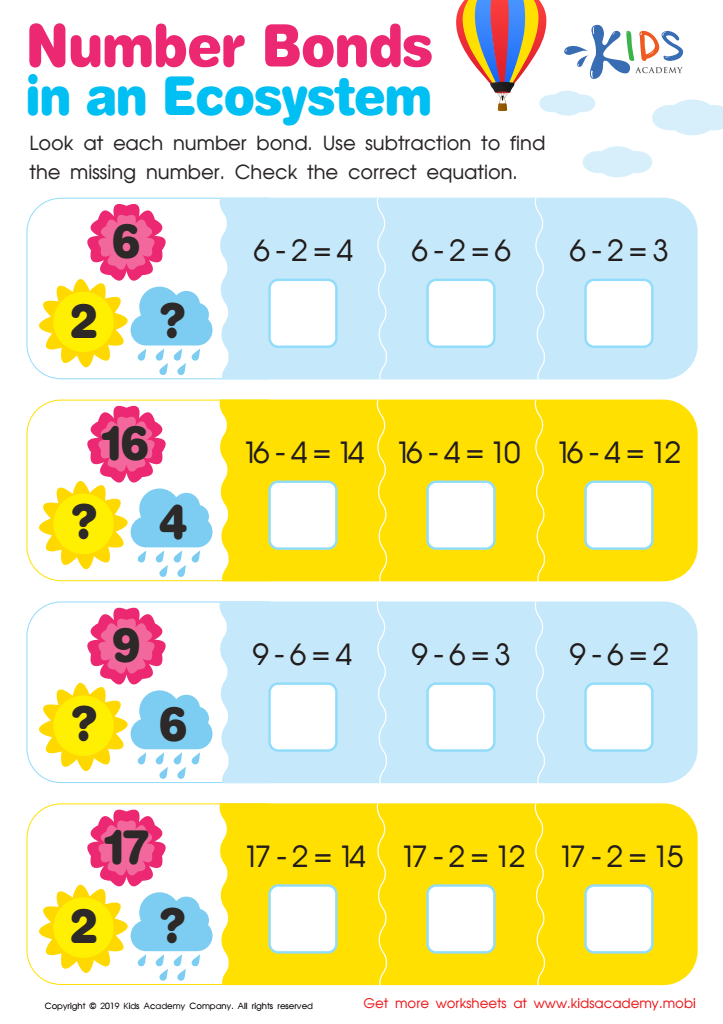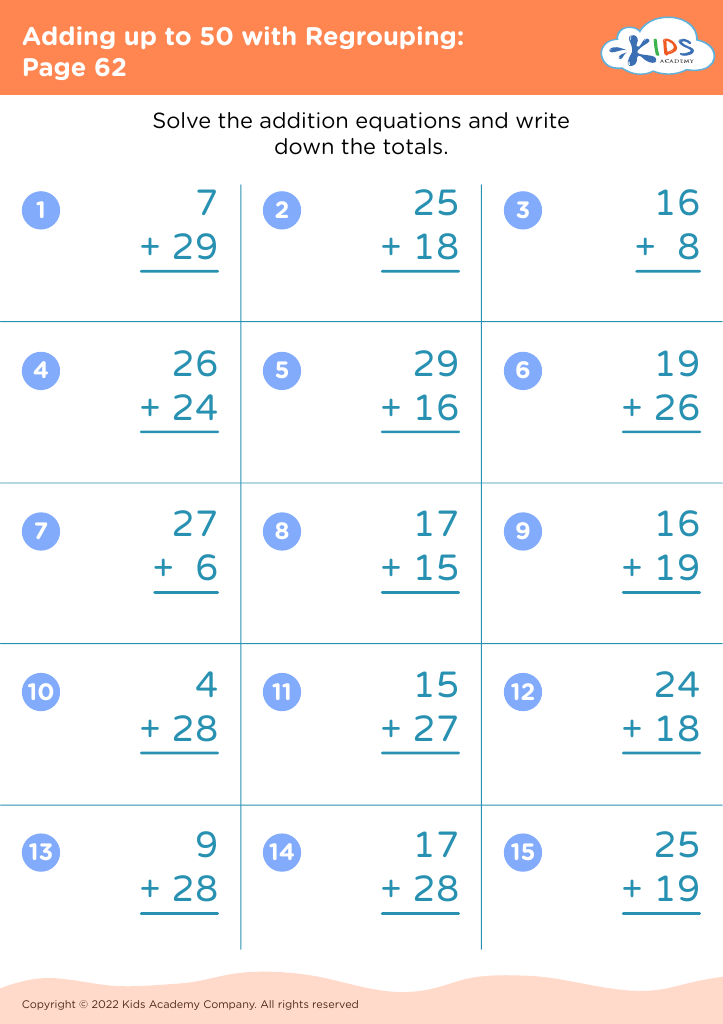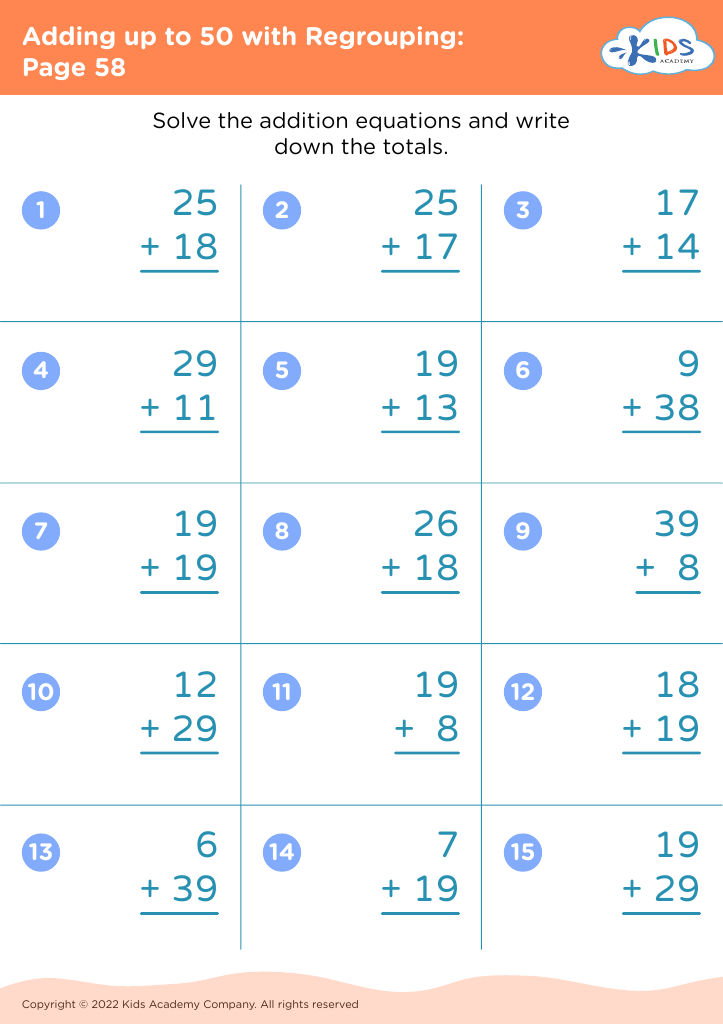Improving addition skills Addition & Subtraction Worksheets for 7-Year-Olds
3 filtered results
-
From - To
Welcome to our "Improving Addition Skills" page designed specifically for 7-year-olds! Here, you'll find a variety of engaging and interactive worksheets that focus on enhancing children's addition and subtraction skills. These thoughtfully designed activities not only make math fun but also promote critical thinking and problem-solving abilities. Our worksheets feature colorful illustrations and step-by-step instructions to help young learners build confidence in their math abilities. Whether at home or in the classroom, our resources are perfect for reinforcing foundational math concepts. Dive in and watch your child's skills flourish as they enjoy mastering addition through our enjoyable and educational exercises!


Number Bonds in an Ecosystem Worksheet
Improving addition and subtraction skills in 7-year-olds is crucial for several reasons. First, these foundational math skills are essential for daily life, including activities such as shopping, budgeting, and cooking. As children grow, strong arithmetic abilities enable them to understand financial concepts, fostering independence and critical thinking.
Second, building proficiency in addition and subtraction creates a positive attitude towards mathematics. When children grasp these concepts, they feel more confident in their abilities, leading to an increased willingness to tackle more complex math problems in the future. This self-confidence can significantly reduce math-related anxiety, which is often observed in later school years.
Moreover, mastery of these basic operations serves as a stepping stone for more advanced math concepts such as multiplication, division, and problem-solving. If these foundational skills are lacking, students may struggle as the curriculum becomes progressively challenging.
Lastly, consistent practice in addition and subtraction encourages cognitive development. Engaging in these activities enhances memory, attention span, and problem-solving skills, all of which are vital not only for math but for learning in general. By supporting young learners in these fundamental areas, parents and teachers can set the stage for academic success, lifelong learning, and essential life skills.



 Assign to My Students
Assign to My Students
















